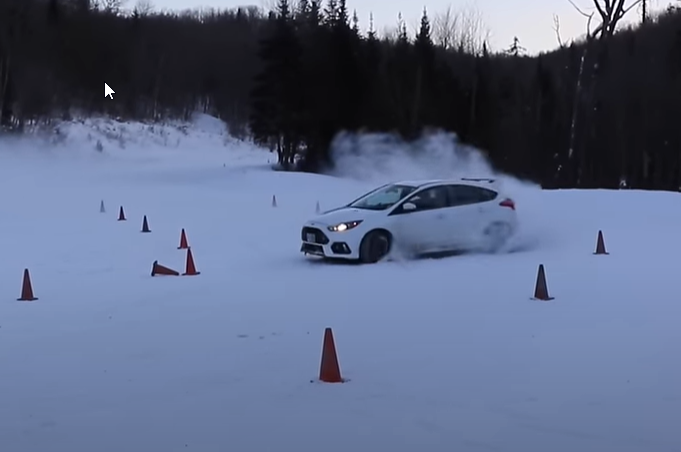
Winter brake safety: Quebec winters put extraordinary demands on your vehicle’s braking system. According to Transport Quebec, winter conditions significantly increase stopping distances, even with properly maintained brakes. Plus, temperatures below freezing can affect your brake system’s performance in multiple ways.
At Autotech Performance, we see firsthand how winter conditions impact vehicles in the West Island. From frozen brake lines to worn-out pads, winter creates unique challenges for your braking system. Therefore, understanding winter brake safety is crucial for every Quebec driver.
Think about this: Your brakes work through friction. However, winter throws multiple obstacles at this simple process. Snow, ice, and road salt create a triple threat to your brake system’s performance. Moreover, the extreme temperature swings we experience in Quebec can affect your brake fluid’s effectiveness.
Many drivers assume their all-season tires and standard brake maintenance are enough for winter. However, our experience shows that winter demands extra attention to your brake system. After all, when you need to stop suddenly on an icy Boulevard Saint-Jean, you want your brakes at their absolute best.
In this comprehensive guide, we’ll explore how winter conditions impact your brakes. You’ll learn about the specific challenges our Quebec winter poses to your brake system. Plus, we’ll share professional maintenance tips gained from years of serving West Island drivers. Our goal is to help you maintain optimal braking performance throughout the cold season.
Whether you’re commuting to Montreal or running errands in Pierrefonds, proper brake maintenance is crucial for winter safety. Let’s dive into what you need to know about protecting your brake system during our harsh Quebec winters.
Understanding How Cold Weather Impacts Your Winter Brake Safety
Cold temperatures affect every component of your brake system. Therefore, understanding these effects helps you recognize potential issues before they become dangerous.
The Science Behind Cold Brakes:
Your brake fluid becomes thicker when temperatures drop below freezing. This increased viscosity means slower response times when you press the brake pedal. Moreover, moisture in your brake lines can freeze, creating potentially dangerous situations. Think of brake fluid like maple syrup – it flows much slower in cold weather. Furthermore, this sluggish flow affects your entire braking system’s responsiveness.
Metal Components React:
Brake rotors and calipers contract in extreme cold. This contraction can create small but significant changes in your brake system’s performance. Plus, the metal parts may respond differently to pressure until they warm up during your drive. In fact, cold metal components might produce unusual sounds during your first few stops. Additionally, the constant temperature changes in Quebec winters can accelerate wear on these parts.
Brake Pad Performance:
Winter conditions affect brake pad materials differently. For instance, some compounds become less effective in extreme cold. Furthermore, road salt and slush can create a layer between your pads and rotors, reducing braking efficiency. Most importantly, this salt buildup can lead to premature wear of your brake components. Therefore, regular cleaning becomes essential during winter months.
Winter Brake Safety and Moisture Issues:
Here in Quebec, the freeze-thaw cycles create unique challenges. Water can seep into tiny cracks, then freeze and expand. Subsequently, this expansion can cause damage to brake components over time. Moreover, condensation inside brake lines poses another winter risk. Plus, this moisture can mix with your brake fluid, potentially compromising its effectiveness.
Warning Signs to Watch:
- Squealing or grinding noises when applying brakes
- Longer brake pedal travel than usual
- Vibration when braking at any speed
- Delayed brake response in cold conditions
- Unusual resistance in the brake pedal
- Grinding sounds during first morning drives
Daily Winter Brake Safety Care
Smart winter driving starts with proper brake warm-up. Therefore, drive gently for the first few kilometers of your journey. Additionally, avoid sudden stops when possible during the first few minutes. Furthermore, keeping your vehicle in a garage helps maintain warmer brake components.
Professional Maintenance Matters:
Regular brake inspections become crucial during winter months. For example, our technicians check for frozen components and moisture buildup. Plus, we ensure proper brake fluid levels and condition. Consequently, these checks help prevent winter-related brake failures.
Consider this typical winter scenario: You start your car on a -25°C morning in Pierrefonds. Your brake pedal feels stiffer than usual. This is your brake system telling you something important about its cold-weather state. However, with proper maintenance and understanding, you can manage these challenges effectively.
Remember, winter brake care isn’t just about safety. It’s also about protecting your investment in your vehicle. Therefore, understanding these cold-weather effects helps you make informed decisions about maintenance and driving habits.
Common Winter Brake Safety Problems to Watch For
Winter in Quebec presents unique challenges for your brake system. Therefore, knowing what problems to watch for can help prevent dangerous situations. Let’s explore the most common winter brake issues we encounter at Autotech Performance.
Frozen Brake Calipers:
One of the most frequent winter issues we see involves frozen brake calipers. Moreover, this problem often occurs after cars sit overnight in freezing temperatures. For instance, your parking brake might stick on cold mornings. Additionally, frozen calipers can cause uneven braking, which creates unsafe driving conditions.
Warning signs of frozen calipers include:
- Resistance when releasing the parking brake
- Dragging sensation while driving
- Burning smell from brake area
- Unusual pulling to one side
- Reduced fuel efficiency
Moisture-Related Winter Brake Safety Issues:
Winter brings snow, slush, and salt onto our West Island roads. Subsequently, this mixture can infiltrate your brake system. Furthermore, moisture can collect in brake lines and components. Therefore, regular brake fluid checks become essential during winter months.
Common moisture-related problems include:
- Spongy brake pedal feel
- Reduced braking power
- Unusual brake noises
- Corroded brake lines
- Compromised brake fluid
ABS System Challenges
Your Anti-lock Braking System works harder during winter. However, extreme cold can affect its sensors and components. Plus, snow and ice buildup around sensors can trigger false ABS activation. Consequently, understanding how your ABS operates in winter becomes crucial.
Signs of ABS issues in winter:
- Frequent ABS activation on clear roads
- Dashboard warning lights
- Unusual pulsing in brake pedal
- Inconsistent brake response
- System deactivation warnings
Salt Damage Prevention:
Road salt helps melt ice but damages brake components. Therefore, regular undercarriage washing becomes essential. Furthermore, salt accelerates rust formation on brake lines and fittings. Most importantly, addressing salt damage early prevents costly repairs later.
Key areas affected by salt:
- Brake lines and fittings
- Caliper mounting brackets
- Rotor surfaces
- Emergency brake cables
- Metal brake components
Professional Winter Brake Safety Inspection Points
At Autotech Performance, we focus on specific areas during winter brake inspections:
- Brake fluid moisture content testing
- Caliper movement checks
- Brake line integrity assessment
- Rotor surface examination
- Pad wear measurement
Prevention Tips – Several simple steps can protect your brakes in winter:
- Avoid sudden stops when possible
- Park in covered areas when available
- Regularly wash under your vehicle
- Listen for unusual brake sounds
- Monitor brake pedal feel
Real-World Example:
Consider this scenario from last winter. A client noticed their brakes feeling “different” on cold mornings. However, they waited to have it checked. Subsequently, moisture in their brake lines had frozen. Consequently, they experienced reduced braking power during an emergency stop.
The Bottom Line:
Winter brake problems often start small but can quickly become serious. Therefore, regular inspections and maintenance prevent most winter-related issues. Plus, addressing problems early saves money and ensures safety.
Remember, your brakes work harder in winter conditions. Furthermore, they face more stress from environmental factors. Most importantly, they’re your first line of defense on icy roads. Consequently, understanding and addressing these common problems keeps you safer on winter roads.
Let’s review the key points for winter brake safety for every Quebec driver
Your brake system faces unique challenges in winter conditions. Therefore, regular maintenance becomes even more critical. Plus, modern brake technologies offer additional safety features when properly maintained.
At Autotech Performance, we understand Quebec winter driving demands. Furthermore, our expert technicians provide comprehensive brake services year-round. Most importantly, we help keep West Island drivers safe during challenging winter conditions.
Some signals to observe when braking: you notice that you take more distance to brake? Does your brake pedal not feel like it used to? Do your brakes make loud noises when you brake? Or do they get a little too hot when you put them to work? All of these could be signs that it’s time to have your brake system checked.
For servicing brake systems in the west island, a good tip: Rely on a recommended CAA garage and use the specialists. To book your vehicle’s check-up with the experts at Autotech Performance Pierrefonds, schedule a reservation online here.
Winter Brake Safety: How Cold Weather Affects Your Braking System (Part 1 of 3)
Brake Maintenance: Essential Checklist and Guide (Part 2 of 3)
Winter Brake Technology and Professional Services Guide (Part 3 of 3)



